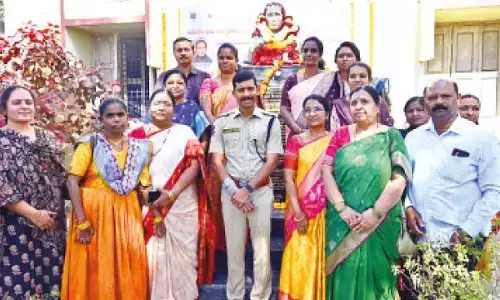50 % of India leaders feel unsure about the future of work

With the pandemic bringing unprecedented changes in work life, a report has revealed that 50 per cent of India leaders agree there is a need to plan for multiple possible futures around the workplace and workforce.
With the pandemic bringing unprecedented changes in work life, a report has revealed that 50 per cent of India leaders agree there is a need to plan for multiple possible futures around the workplace and workforce.
However, the cost pressures, competing investments or priorities, lack of systems and data, and organisational culture are the biggest inhibitors faced by India leaders in creating a more fit for future workplace, according to PwC India's People and culture first: Transformation journey in the future of work report.
"About 50 per cent of India leaders agree there is a need to plan for multiple possible futures around the workplace and workforce but cost pressure and the fear of setting a precedent holds them back from taking action," said the report. It also revealed that the future of work involves tapping into talent virtually in tier II and III cities on the one hand and leveraging the gig economy on the other.
PwC's global Future of Work and Skills report is based on a survey of nearly 4,000 business and HR leaders across 26 territories and from organisations across diverse sectors, of which 210 leaders were from India. The report further revealed that 48 per cent of leaders in India agree it is very important to identify the potential risks associated with replacing human work with technology but are reluctant to create a culture of transparency.
About 54 per cent of India leaders realise the importance of identifying the skills needed to keep pace with the changing times, however, they are reluctant to take action due to competing priorities, it added. "Earlier workforce challenges centred around broader areas of organisational design and capabilities woven in with organisational culture. But with the changing nature of the workplace, the challenges seem to be more employee driven, both globally and locally," PwC Partner and Leader, People and Organisation and HR Transformation, Chaitali Mukherjee noted.
At this juncture, she pointed out that it is important for all organisations across the world to prioritise leadership capabilities in order to orchestrate changes and move the needle in business. Over the past two years, the pandemic has compelled leaders to question their choices on many aspects affecting their organisations, right from people to culture to technology, she said.
"They have realised, as our report indicates, that along with strategic organisational intent and system optimisation, they also need to proactively act on workforce initiatives, build capability in a well-considered way, and, among other things, work towards making their culture more resilient in order to be future ready," Mukherjee added.














